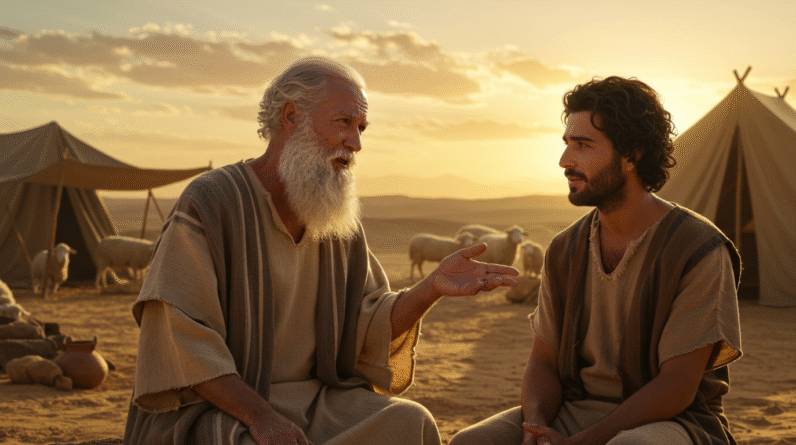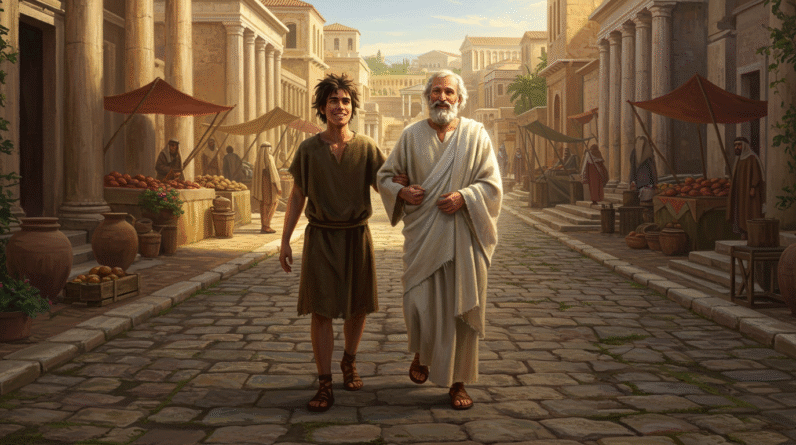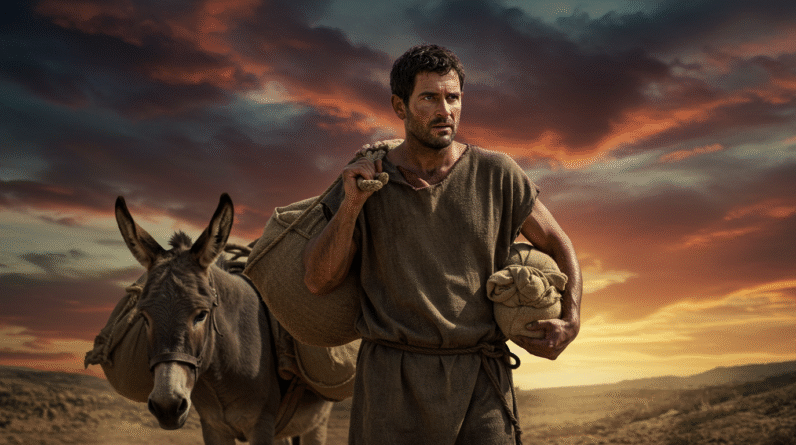Explore the understated yet powerful story of Seraiah, the high priest during Jerusalem’s fall, in this insightful article on faith, leadership, and resilience.
The Role of Seraiah the High Priest in Biblical Narrative
In the tapestry of biblical narratives, the lives of those who served in the temple invite curiosity and reflection. Seraiah, the high priest during the tumultuous final days of the Kingdom of Judah, commands attention not merely through his priestly duties but as a figure emblematic of a nation on the brink of divine judgment. His role, though often overshadowed by more prominent scriptural figures, underscores themes of devotion, leadership, and resilience amidst collapse. As an integral part of the sacred and civic landscape, Seraiah’s story beckons us to consider the weight of tradition and faithfulness in turbulent times.
Seraiah: Key References in the Scriptures
To fully appreciate the nuanced role of Seraiah, we must dive into the key scriptural verses that feature him. Seraiah is mentioned in the context of significant events that marked the fall of Jerusalem. Specifically, Seraiah is referenced in 2 Kings 25:18-21, Jeremiah 52:24-27, and 1 Chronicles 6:14.
Introduction
Imagine standing among the tumult and ruin as the last breaths of an era echo through the cries of a conquered people. Seraiah, the high priest, inhabited precisely this world—a world where divine promises and national rebellion collided dramatically. Through his life, we witness a convergence of faithfulness and failure, each expressing poignant lessons relevant even today. It is within these narratives that Seraiah’s unique role becomes significant. Located at the heart of Jewish worship and identity, Seraiah is a reminder of the enduring impact of spiritual leadership.
Their Story in the Bible
Seraiah’s appearance in the biblical narrative is brief yet momentous. As the high priest during the Babylonian siege of Jerusalem, Seraiah stood as a spiritual beacon amidst the chaos. In 2 Kings 25:18-21, we discover the somber climax of his story. As Nebuzaradan, commander of the imperial guard from Babylon captures Jerusalem, a series of tragic events unfold. The Babylonian forces seize Seraiah alongside other key leaders and royal officials.
In another passage, Jeremiah 52:24-27, the story depicts how Seraiah, alongside Zephaniah, was taken to Riblah, where Nebuchadnezzar ordered their execution. This was a systematic dismantling of Judah’s spiritual and civic leadership, reflecting the severity of Judah’s decline into exile.
Despite the brevity of his biblical mentions, Seraiah’s life resonates with tales of loyalty, ignominy, and a nation’s spiritual disintegration. In the genealogy listed in 1 Chronicles 6:14, Seraiah’s position within the high priestly lineage acknowledges not just his role but his heritage, affirming his spiritual legitimacy and the weight of his duties amid one of Judah’s darkest periods.
Lessons from Their Life
Seraiah’s life offers profound lessons that speak to contemporary hearts. First and foremost is the call to steadfastness and faithfulness in the face of adversity. Amidst the impending catastrophe, Seraiah maintained his duties within a crumbling order. This emphasizes how pivotal spiritual perseverance is, especially when external circumstances threaten destruction.
Secondly, Seraiah’s fate highlights the importance of righteous leadership. As the representative of the Israelite faith, Seraiah’s life serves as a sobering reminder that the actions of the faithful can uplift or dismantle communities.
Lastly, through Seraiah’s story, we encounter the theme of humility. Here was a man of influence and respect, who ultimately faced a tragic end. His narrative prompts us to reflect on the transient nature of earthly power and the lasting impact of one’s spiritual legacy.
Connection to Today’s World
In many ways, the story of Seraiah seems an ancient echo resounding into today’s societal challenges. Consider the cultural upheavals, the leadership voids, and the questions of faith that modern communities face. Seraiah’s narrative invites us to ponder how we maintain integrity and uphold a moral and spiritual compass in a world often characterized by uncertainties and the erosion of tradition.
Today, leaders across various sectors—be it religious, educational, or political—grapple with similar challenges as Seraiah. The lesson of his life stands as a testament to the enduring need for strong, righteous leadership amidst societal pressures that threaten to sidetrack foundational values and spiritual tenets.
Key Bible Verse
“I’m going to read and also interpret for you one specific verse that carries the weight of Seraiah’s journey and its implications:
“Then he took the chief priest, Seraiah, Zephaniah the priest next in rank, and the three doorkeepers.” (2 Kings 25:18)
This verse lays bare the hearts of a once-great community reduced to the remnants of its leadership. It illuminates the fragility of human standing and the divinely charged call to lead in both prosperity and ruin, urging reflection on how you answer this call in your life.
Thought-Provoking Question
Reflect on the days of adulation or those of mere oblivion: When faced with uncertainty or the impending fall of structures you once trusted, how do you uphold your spiritual and moral values like Seraiah strived to do?
Embracing the intricate tales of figures like Seraiah allows a deepened appreciation of the continued presence of timeless truths. Consider how these stories inform your world.







